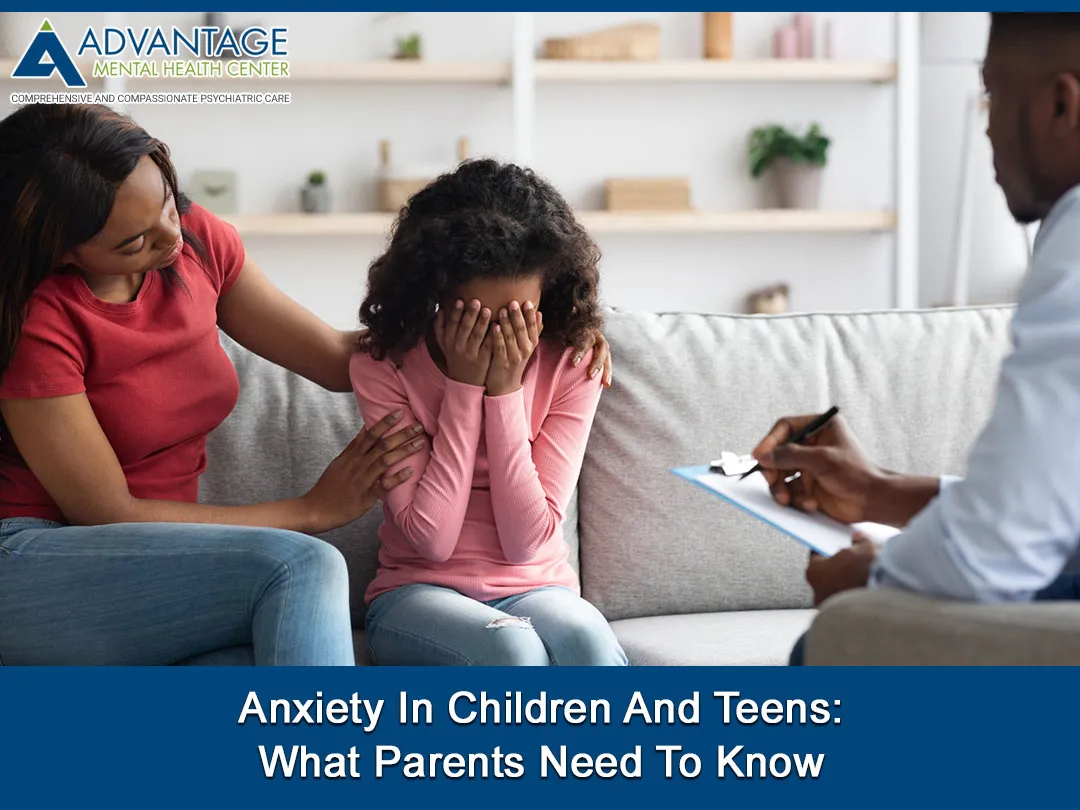Anxiety in children and teens is a growing concern for many parents, especially in vibrant communities like Clearwater. As the pressures of academic performance, social interactions, and extracurricular activities increase, parents need to recognize the signs of anxiety and understand how to support their children effectively.
Anxiety manifests differently in children and teens compared to adults. It can often be mistaken for typical developmental challenges, making it crucial for parents to differentiate between them. Common signs of anxiety in young people include excessive worry about everyday activities, avoidance of social interactions, physical complaints like headaches or stomachaches, and changes in sleep patterns. In Clearwater, where the community is active and dynamic, these signs can sometimes be masked by the hustle and bustle of daily life.
Understanding the root causes of anxiety is the first step in addressing it. In children and teens, anxiety can be triggered by various factors, including family issues, school pressure, social dynamics, or even major life changes such as moving to a new place. Clearwater’s lively environment, while generally positive, can sometimes add to these stressors due to the high expectations and constant activity.
Parents play a critical role in managing their children’s anxiety. Open communication is vital. Encourage your child to express their feelings and listen without judgment. This creates a safe space for them to talk about their anxieties. Numerous community resources, including support groups and counseling services, can provide additional support for parents and children.
Creating a structured and predictable home environment can help reduce anxiety. Children and teens thrive on routine, which provides a sense of security and control. Maintaining a calm and organized home environment can offer a much-needed sanctuary from external pressures. Simple steps like setting regular meal times, homework schedules, and bedtime routines can make a significant difference.
Encouraging physical activity is another effective way to manage anxiety. Clearwater’s beautiful beaches and parks provide ample opportunities for outdoor activities. Regular exercise helps reduce stress and anxiety by releasing endorphins and providing a healthy outlet for energy. Whether it’s a family walk on the beach, biking along the Pinellas Trail, or participating in local sports, incorporating physical activity into your child’s routine can have profound benefits.
Mindfulness and relaxation techniques are also beneficial. Teaching your child deep breathing exercises, meditation, or yoga can equip them with tools to manage their anxiety. Your community offers various classes and programs focused on mindfulness and relaxation that parents and children can attend together.
Professional help should be considered if anxiety persists or interferes significantly with your child’s daily life. Licensed therapists and counselors specialize in pediatric anxiety and can provide tailored strategies and interventions. Cognitive-behavioral therapy (CBT) is one of the most effective treatments for anxiety, helping children and teens develop coping mechanisms and change negative thought patterns.
Parents need to take care of their mental health as well. Managing a child’s anxiety can be challenging and stressful. Joining a parent support group can provide a sense of community and shared understanding. Parents who model healthy coping strategies can positively influence their children’s approach to anxiety.
Educating yourself about anxiety is crucial. Numerous resources are available, including books, websites, and workshops that offer insights into managing anxiety in children and teens. Staying informed empowers you to support your child better and advocate for their needs.
Anxiety in children and teens is a complex issue that requires attention, understanding, and proactive management. In a vibrant community like Clearwater, where the pace of life can be both exciting and overwhelming, parents need to be vigilant in recognizing the signs of anxiety and providing the necessary support. By fostering open communication, creating a structured environment, encouraging physical activity, teaching relaxation techniques, seeking professional help when needed, and taking care of their mental health, parents can help their children navigate anxiety and lead healthier, happier lives. For additional resources and support, visit Advantage Mental Health Center.
Picture Credit: iStock


